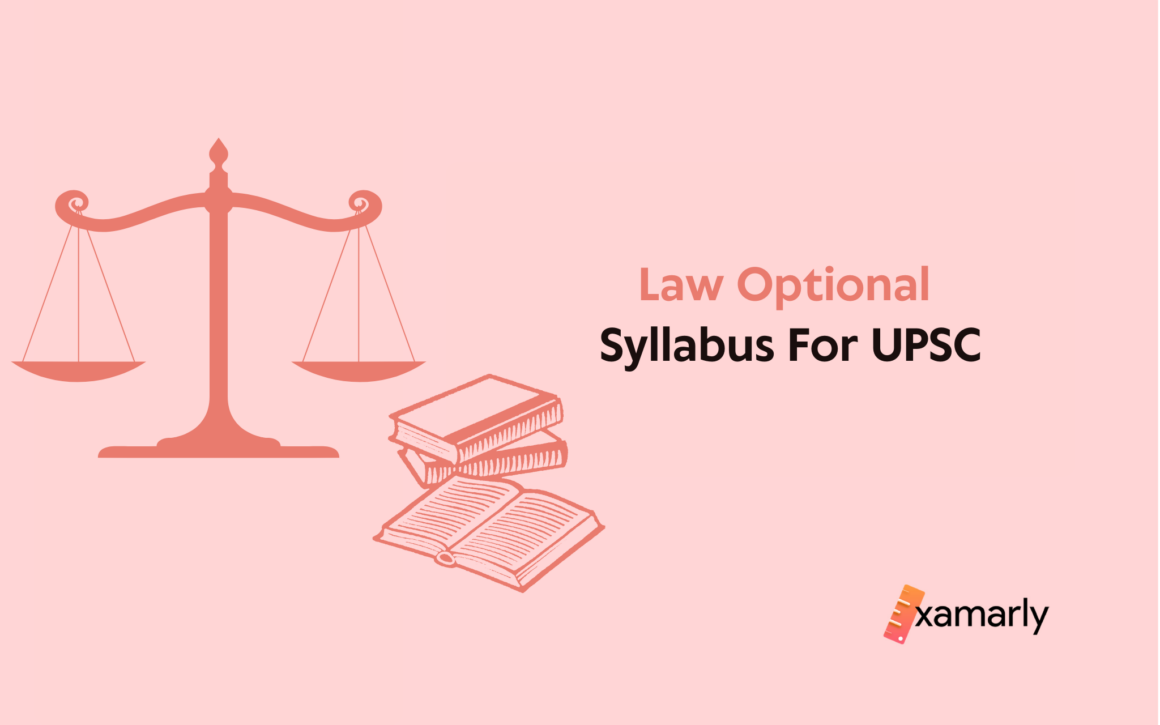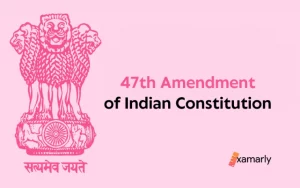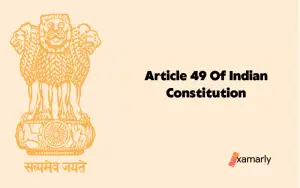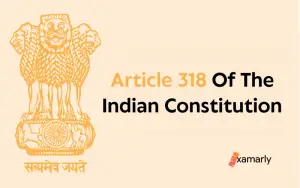Law optional Syllabus For UPSC comprises of two papers (Optional papers I and II).
A recent analysis showed the popularity of Law as an Optional subject for the UPSC IAS Mains exam. A few important factors include a small syllabus, a high-scoring Optional, an overlapping syllabus with GS Papers and a high success rate.
This article will cover the detailed syllabus of the Law Optional paper.
Law Optional Syllabus For UPSC For Paper I
The syllabus for Paper I is divided into two parts- Constitutional and Administrative Law and International Law. If the polity segment is well-prepared, an applicant would be able to address the topics even if they have no expertise in law.
- Constitutional and Administrative Law-
- Constitution and Constitutionalism: It covers the distinctive features of the Constitution.
- Fundamental Rights: It includes Public Interest Litigation; legal aid; legal services authority.
- Relationship between Fundamental Rights, Directive Principles and Fundamental duties.
- The constitutional position of the President and relation with the Council of Ministers.
- Governor and his powers.
- Supreme Court and High Courts:
- Appointments and transfer
- Powers, functions and jurisdiction
- Centre, States and Local bodies:
- Distribution of legislative powers between the Union and the States.
- Local bodies
- Administrative relationship among Union, state and local bodies
- Eminent domain-State property-common property-community property.
- Legislative powers, privileges and immunities.
- Services under the Union and the States:
- Recruitment and conditions of services; Constitutional safeguards; Administrative tribunals.
- Union Public Service Commission and State Public Service Commissions—Power and functions.
- Election Commission—Power and functions
- Emergency provisions
- Amendment of the Constitution
- Principle of Natural Justice—Emerging trends and judicial approach
- Delegated legislation and its constitutionality.
- Separation of powers and constitutional governance.
- Judicial review of administrative action
- Ombudsman: Lokayukta, Lokpal etc
- International Law-
- Nature and Definition of International Law.
- Relationship between International Law and Municipal Law.
- State Recognition and State Succession.
- Law of the sea:-Inland Waters, Territorial Sea, Contiguous Zone, Continental Shelf, Exclusive Economic Zone and High Seas.
- Individuals: Nationality, statelessness; Human Rights and procedures available for their enforcement
- Territorial jurisdiction of States, extradition and asylum
- Treaties: Formation, application, termination and reservation
- United Nations: Its principal organs, powers and functions and reform
- Peaceful settlement of disputes—different modes
- Lawful recourse to force: aggression, self-defence, intervention
- Fundamental principles of international humanitarian law—International conventions and contemporary developments.
- The legality of the use of nuclear weapons; ban on the testing of nuclear weapons; Nuclear nonproliferation treaty, CTST.
- International Terrorism, State-sponsored terrorism, Hijacking, International Criminal Court
- New International Economic Order and Monetary Law: WTO, TRIPS, GATT, IMF, World Bank.
- Protection and Improvement of the Human Environment: International Efforts.
UPSC Law Syllabus For Paper II
The topics of Paper II are divided into 4 parts, namely Law of Crimes, Law of Torts, Law of Contracts and Mercantile Law and Contemporary Legal Developments.
The contents covered under these topics are as follows-
- Law of Crimes-
- General principles of Criminal liability:- mens rea and actus reus, mens rea in statutory offences.
- Kinds of punishment and emerging trends as to abolition of capital punishment.
- Preparations and criminal attempt
- General exceptions
- Joint and constructive liability.
- Abetment
- Criminal conspiracy
- Offences against the State.
- Offences against public tranquility.
- Offences against human body
- Offences against property
- Offences against women.
- Defamation.
- Prevention of Corruption Act, 1988.
- Protection of Civil Rights Act, 1955 and subsequent legislative developments.
- Plea bargaining.
- Law of Torts-
- Nature and definition
- Liability based upon fault and strict liability; Absolute liability.
- Vicarious liability including State Liability
- General defences.
- Joint tort fessors.
- Remedies
- Negligence.
- Defamation.
- Nuisance.
- Conspiracy
- False imprisonment
- Malicious prosecution.
- Consumer Protection Act, 1986
- Law of Contracts and Mercantile Laws-
- Nature and formation of contract/E-contract
- Factors vitiating free consent
- Void, voidable, illegal and unenforceable agreements.
- Performance and discharge of contracts.
- Quasi-contracts.
- Consequences of breach of contract.
- Contract of indemnity, guarantee and insurance.
- Contract of agency.
- Sale of goods and hire purchase.
- Formation and dissolution of partnership.
- Negotiable Instruments Act, 1881.
- Arbitration and Conciliation Act, 1996
- Standard form contracts
- Contemporary Legal Developments-
- Public Interest Litigation.
- Intellectual property rights Concept, types/prospects.
- Information Technology Law including Cyber Laws—Concept, purpose/prospects.
- Competition Law—Concept, purpose/prospects.
- Alternate Dispute Resolution—Concept, types/prospects.
- Major statutes concerning environmental law.
- Right to Information Act.
- Trial by media.
Is Law Optional For UPSC Wise Choice For Mains?
Because the law’s syllabus overlaps with both the Preliminary and Mains GS Papers, it is a subject that scores well.
Basic knowledge of the laws and regulations controlling society is necessary for law. It is not only a well-liked choice for UPSC hopefuls with a background in law, finance, international trade, administration, and management, but also for those who are completely ignorant of legal principles.
Owing to its success ratio, a similar syllabus with compulsory papers (GS Papers) and less syllabus, many students are now inclined towards Law Optional in IAS Mains.
Law Optional also enhances the answer-writing skills of aspirants and tremendously helps students in the preparation of all of their answers for the Civil Services Mains exam.
Thus it can be concluded that Law as an Optional in Civil Services Mains Exam is a good choice and can fetch good marks thereby increasing the merit in the IAS Mains.
UPSC Law Optional Preparation
Cracking the Civil Services Mains Exam can be challenging. However with the proper strategy and preparation, one can easily pass the exam.
As compared to students graduating from law, non-law graduates might find it difficult to study for this Optional. But consistency and determination is all one need during preparation.
As far as Law is concerned, some tips can make the preparation easy-
- Knowledge of the detailed syllabus of Law.
- Aspirants can get a better understanding of the possible questions by taking Mock Tests.
- Examine the question papers from last year. Aspirants can gain insight into the nature of the questions and the syllabus’s scope.
- Aspirants should have reference books and the basic essence of the law subject on hand while studying for the Law Optional.
- The aspirants should concentrate on topic revision. The most crucial thing is a revision to better assimilate the curriculum.
Related – Math Optional Syllabus For UPSC CSE
See Also – Taking Law Optional in UPSC Mains Exam
Standard Books For Preparation Of Law Optional
It is always wise to study from Standard books for any exam. For a Law Optional, some vital books for references are-
For Paper I:
- A book by MP Jain can help cover the topic of Indian Constitutional Law.
- For Introduction to the Constitution of India, a book by D.D Basu is recommended. Constitutional Law can be read from a book by V.N Shukla
- International Law can be covered by a book written by S.K Kapoor.
- Administrative Law by I.P. Massey
For Paper II:
- Criminal Law by P. S. Atchuthen Pillai
- Law of Torts by R.K. Bangia
- Law of Mercantile by Avatar Singh
- Jurisprudence by P.K. Tripathi and Dias
- Indian Penal Code by KD Gaur
Conclusion
Law is a high scoring Optional with a small syllabus and has similar topics to GS Papers. This implies that studying for one subject pays off in preparation for another, enhancing the chances of success.
The easiest way to conquer any exam is to have proper knowledge of the syllabus, pattern of test papers and revision of the Previous year’s Questions.
The most important thing to do before you start your preparation is to go through the previous years’ IAS Mains questions papers so that you get a fair idea of the questions asked.
With proper sitting, handy notes and determination, one can pass the exam with flying colours.






